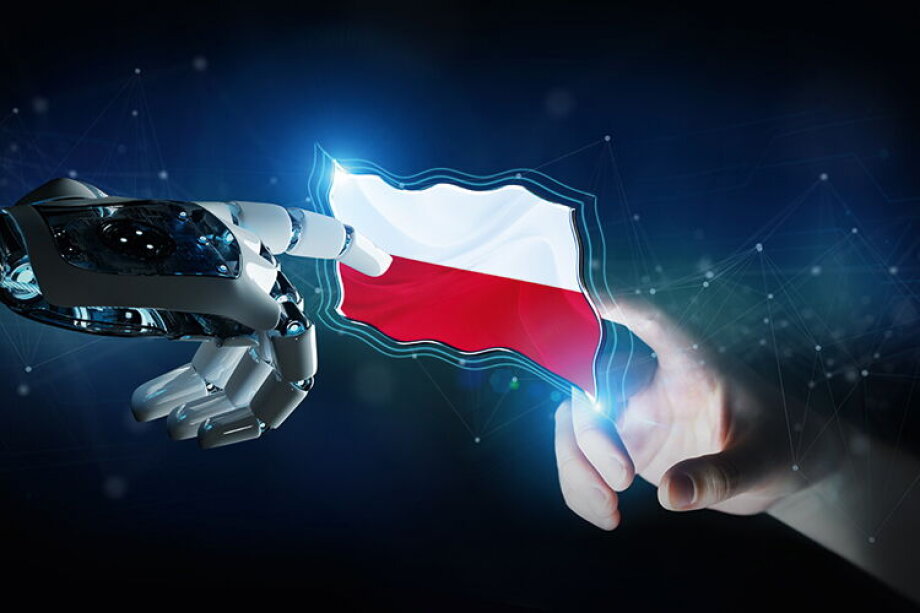AI is coming
The race to create self-thinking devices is picking up speed and anticipation for the next generation of Artificial Intelligence is high. But what happens when it gets here?

The race to create self-thinking devices is picking up speed and anticipation for the next generation of Artificial Intelligence is high. But what happens when it gets here?

by Sergiusz Prokurat
The development of Artificial Intelligence (AI) is something akin to summoning a demon. It's a lot of fun for everybody involved, there is a great deal of curiosity about how it will turn out, and everyone expects that somebody understands the consequences. The only thing needed to make to happen is a proper sacrifice, i.e., enough funding. So the question is, what if, in the end, against all odds, one day, this demon actually rises?
The race to create self-thinking devices and software is on. So far, such things don't exist. In late 2022, OpenAI released ChatGPT, a chatbot that answers questions in simple, concise language. However, it is not Artificial Intelligence but rather automated machine learning algorithms applied to a massive corpus of text to respond to users' requests. ChatGPT can pass a high school final or a university exam, and even write a scientific essay that could be published in a journal. Midjourney, Dall-E2 can create an original image. SynthesiaIO can generate a video. The effect of popularizing such tools will be a shift in the functioning of the education sector and the approach to content. The technology of generating images and content enables the creation of original photos from actual photos from social media, posing numerous opportunities and threats. Everyone wants to have Artificial Intelligence today – even if it is makeshift. As a result, the stocks of companies creating AI solutions are rising dramatically in value.
Meanwhile, Artificial Intelligence is only a simple reflection of human intelligence. It will tell us what we want to hear or see – because it is supposed to work for us, right? One of the most ambitious government projects in history was inaugurated in Chile in 1970, when the presidency of Salvador Allende began. He wished to use intelligent computers to build a socialist utopia. The Chilean government at the time wanted to nationalize essential segments of the economy, control commodity prices, and expand the welfare state system. Cybersyn, a modern machine with a futuristic interface in a central control room reminiscent of the interiors of the Star Trek TV series, was intended to communicate via telefacsimiles sent by officials. The data was immediately transported hundreds of kilometers away to the hands of analysts who would set prices. Cyberfolk computers were supposed to analyze social moods and propose real-time actions to politicians. Yet, the failure of this project, and the subsequent economic and political catastrophe in Chile, have not discouraged politicians from similar solutions.
The appeal of disruptive innovation that might change the world forever has never faded. In particular, AI's potential is especially attractive to security services. Effective surveillance and intelligent eavesdropping on every telephone conversation is a worst-case scenario that will end only in the type of dystopia we know from sci-fi movies. This unbridled enthusiasm is why initiatives are needed to regulate the use of AI – nationally and internationally.
There is an AI race going on in the world right now. The competitiveness of economies leading in the race to construct technologically advanced solutions, including AI, closely correlates with their level of innovation. Poland has its own strategy with short, medium, and long-term goals. According to the government report "Policy for the Development of Artificial Intelligence in Poland from 2020," it is necessary to involve the public sector and the largest state-owned companies in financing AI projects due to the small number of large private companies. Belief in the causative power of the state is extremely strong in Poland. Will Polish entities invent AI with state money? Or will they end up like the Chilean government's economic management program?
Poles are becoming more and more interested in IT topics, and therefore also AI. In terms of the number of experts working on developing or implementing artificial Intelligence, Poland ranks first in Central and Eastern Europe. According to PARP's forecasts, the value of the global AI market will increase to over USD 190 billion by 2025. Unfortunately, other data on the AI ecosystem is not so optimistic – the State of Polish AI 2021 report (a comprehensive publication on the Polish AI ecosystem) shows that Polish companies still do not consider the potential for the development of AI and machine learning. Only 6% of the largest Polish companies use machine learning. Unfortunately, this is one of the lowest rates in the European Union. The cooperation between companies and scientific units is also weak. COVID-19 and its consequences, as well as the current high inflation, have negatively affected the implementation of new technologies in the Polish economy.
Artificial Intelligence has the potential to improve our quality of life. For example, by combining parametric dynamic imaging with Artificial Intelligence and telemedicine, early detection of breast cancer and estimation of the probability of contracting cancer are possible. A device called Ailis makes 250 measurements and performs advanced data analysis (using Artificial Intelligence), after which women immediately receive information about the health of their breasts. Doctors will soon use AI for treatment, and speech recognition applications will facilitate communication everywhere in the world. Artificial Intelligence algorithms will soon be able to converse like a human.
Of course, new technologies always raise thorny ethical questions that the world is not ready for. Of course, summoning a real demon is still years away. Currently, to get an AI model that recognizes a horse, you need to show it thousands of images of horses. However, if one day it is summoned, a place where its infernal powers cannot reach will probably be the safest location.